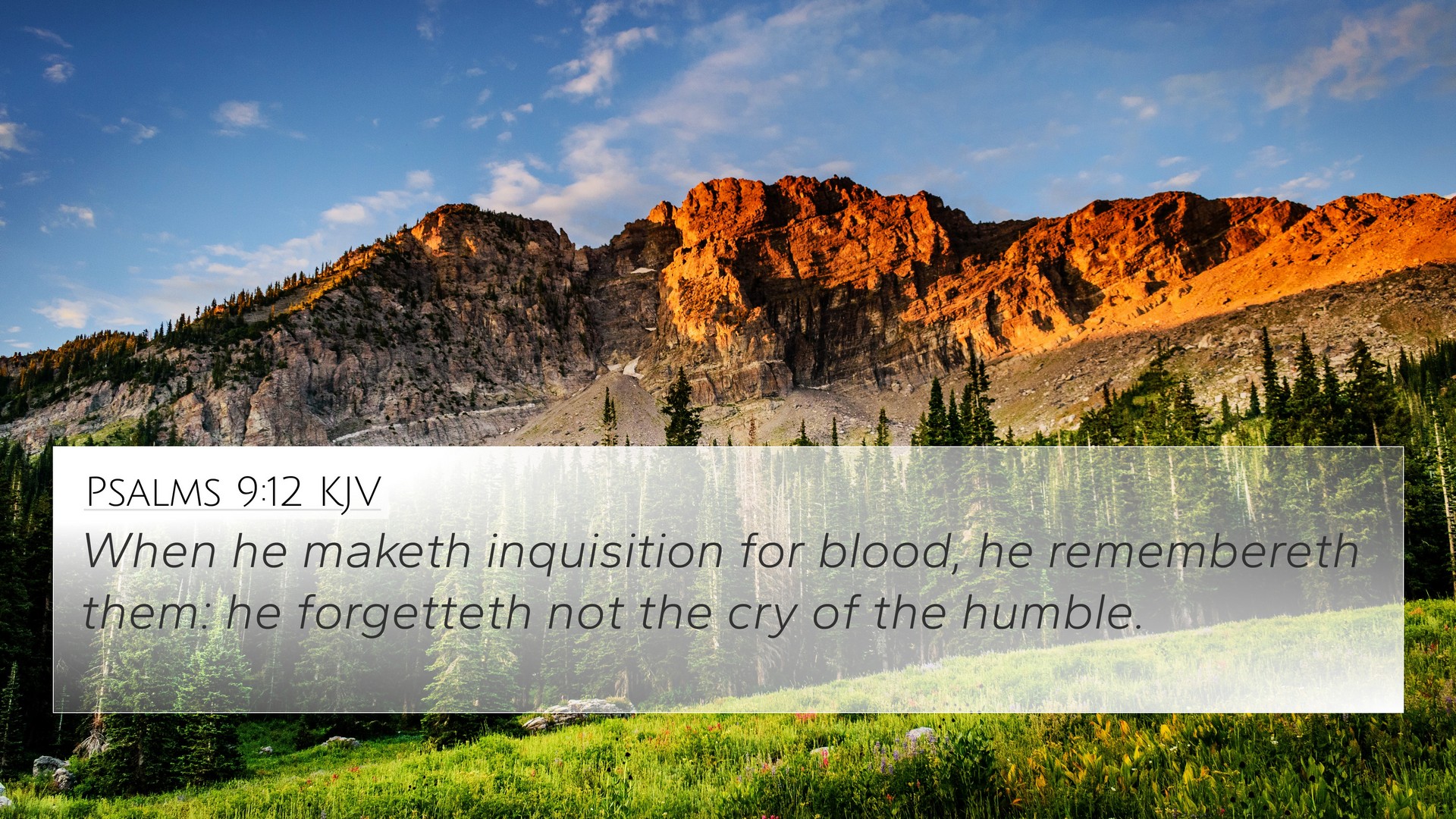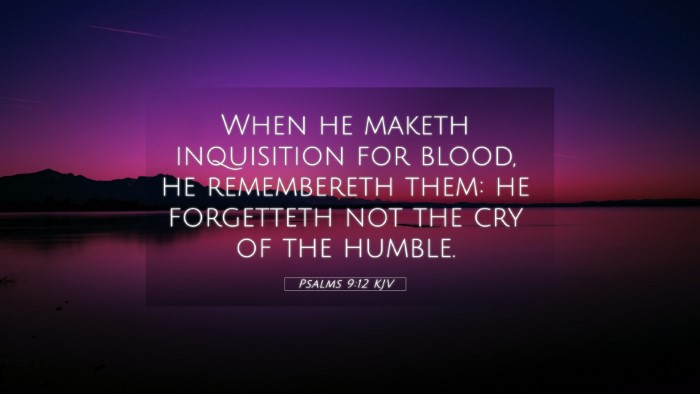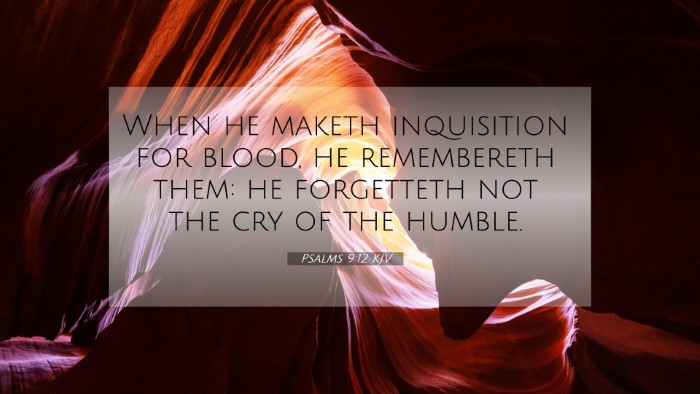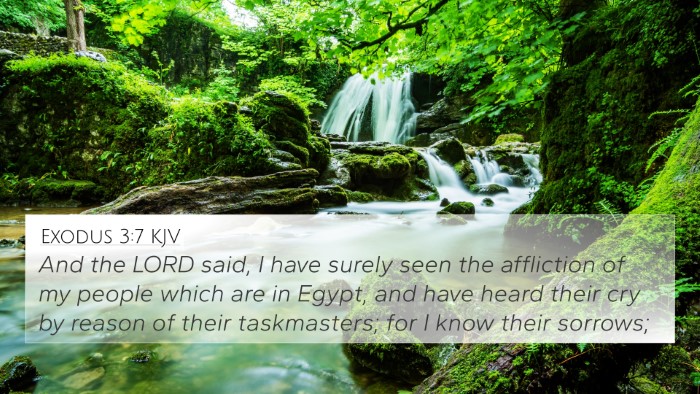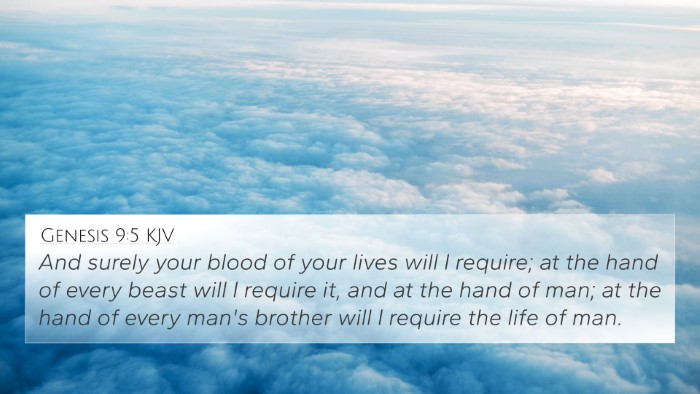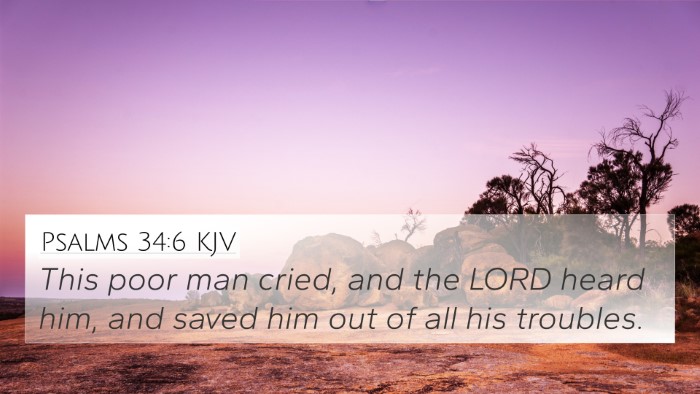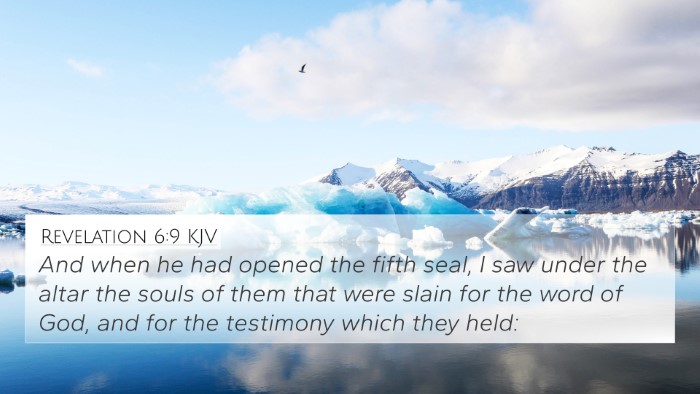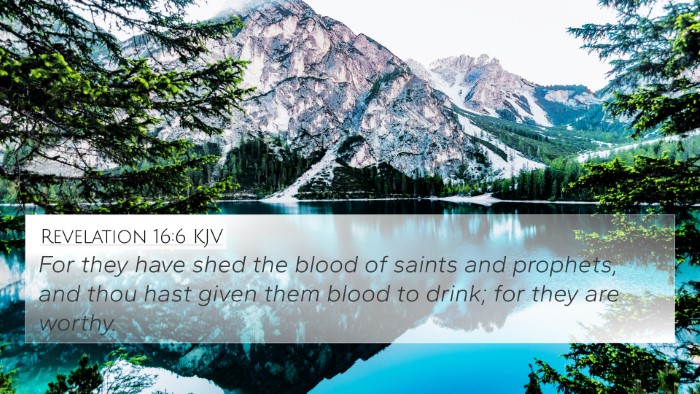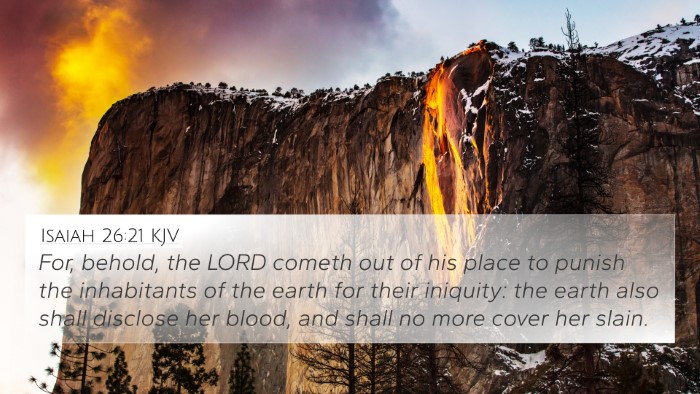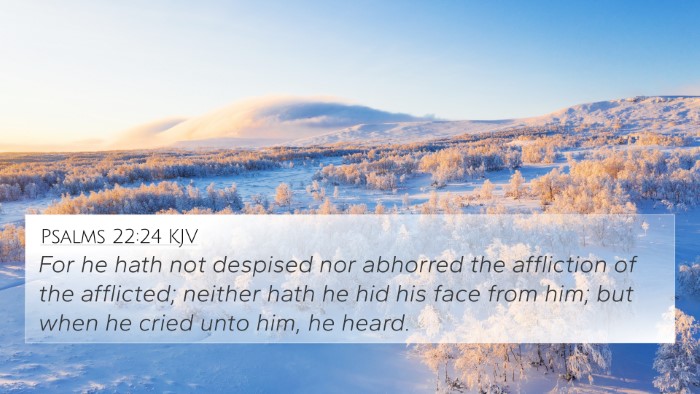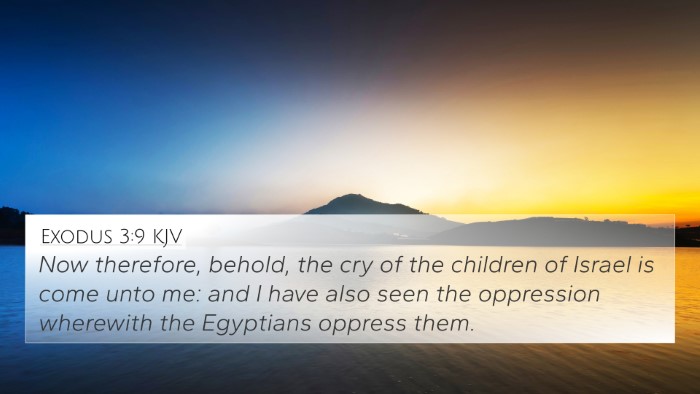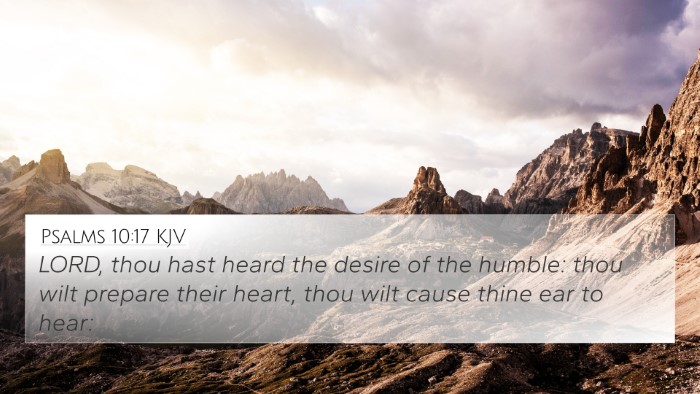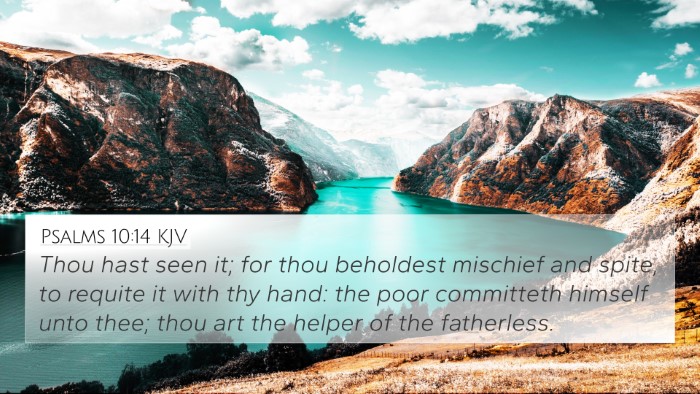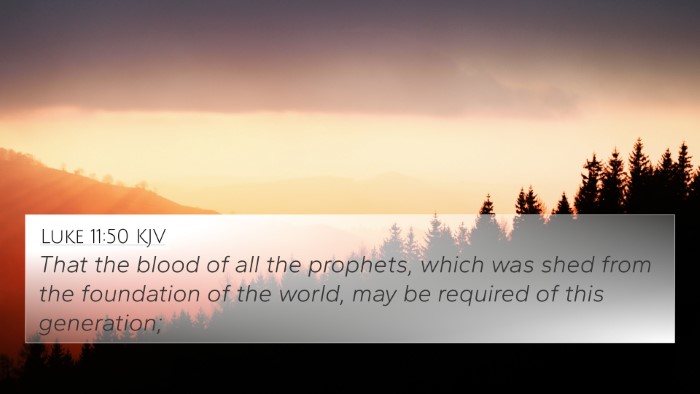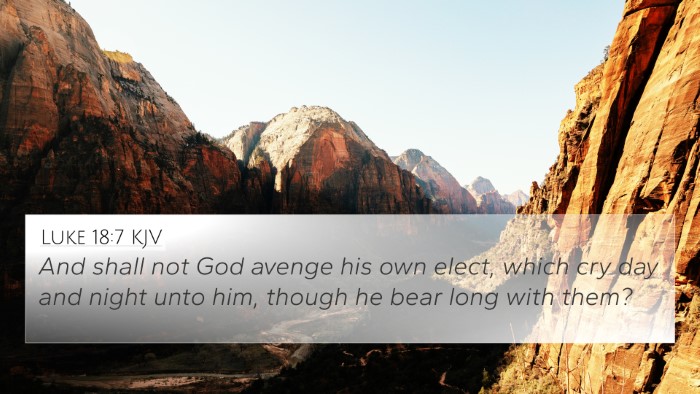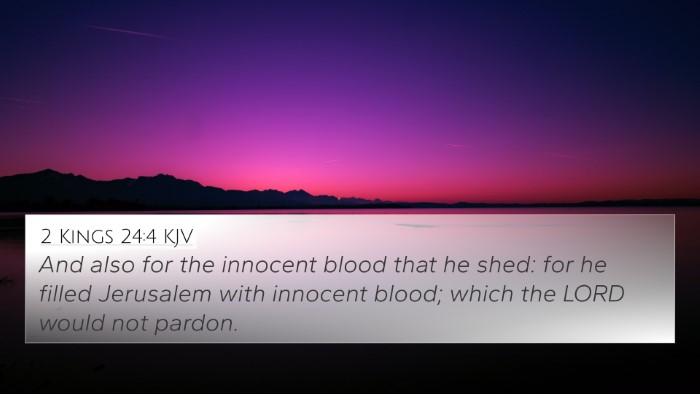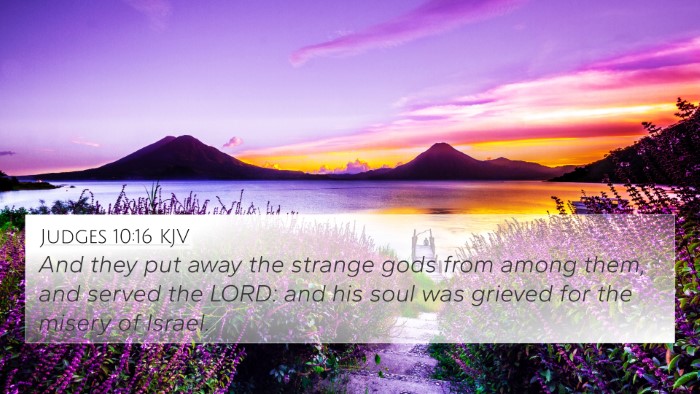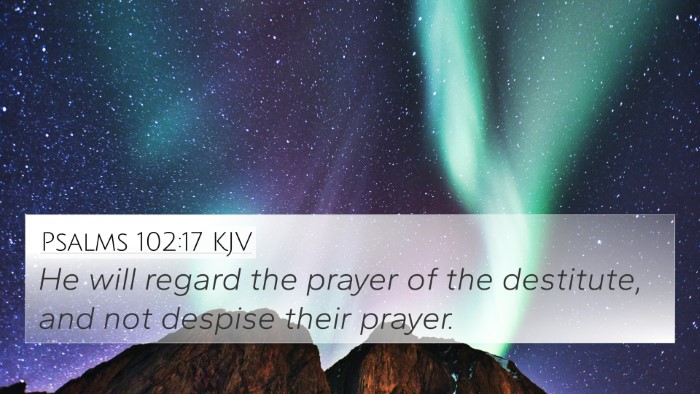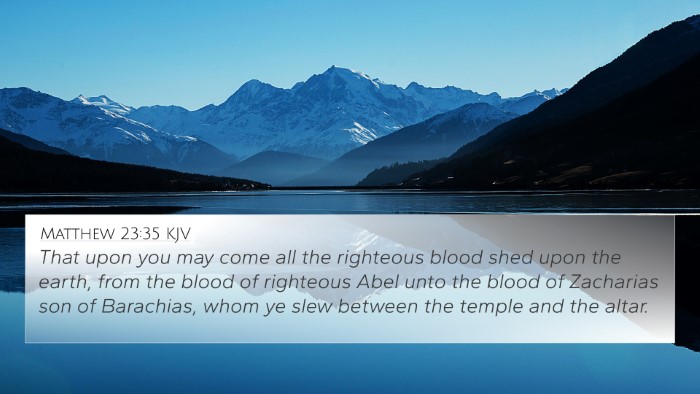Psalms 9:12 Explained
Bible Verse: Psalms 9:12 - "When he maketh inquisition for blood, he remembereth them: he forgetteth not the cry of the humble."
This verse emphasizes God’s justice and His awareness of human suffering, highlighting the divine nature of retribution and mercy. Below, we explore various insights gathered from public domain commentaries.
Meaning and Insights
The essential themes in Psalms 9:12 can be broken down as follows:
- Divine Justice: God is portrayed as a judge who seeks justice for the oppressed. The phrase "maketh inquisition for blood" indicates His active pursuit of justice for those wronged.
- Memory of the Oppressed: The remembrance of the humble is crucial; it signifies that God acknowledges the struggles of the less fortunate and does not overlook their cries for help.
- Connection to Human Experience: The verse resonates with those who have experienced suffering, providing comfort through the assurance that God is attentive to their plight.
- Theme of Redemption: Amidst the themes of justice and remembrance lies a promise of redemption, where God’s involvement leads to eventual relief and justice for the humble.
Commentary Insights
Here are combined insights from renowned commentators:
Matthew Henry
Matthew Henry emphasizes that God's inquisition for blood speaks to His role as the ultimate judge who will not let injustices go unpunished. He highlights that even in the cries of the humble, God finds a reason for compassion and will act on their behalf.
Albert Barnes
Albert Barnes notes that the remembrance of the humble aligns with God's character as one who regards the lowly. He suggests that this text encourages believers to lift their voice in prayer, reminding them that God is attentive to their needs.
Adam Clarke
Adam Clarke points out that the plea of the humble is never forgotten by God. He elaborates that God’s just nature ensures that the blood of the slain is called to account, and the faithful can take solace in God's imminent justice.
Cross-References
Psalms 9:12 connects with various Bible verses that further illuminate its themes. Here are 10 pertinent cross-references:
- Genesis 4:10: God speaks of the blood of Abel crying out from the ground, paralleling the inquisition for blood mentioned in Psalms 9:12.
- Exodus 3:7-9: God hears the cries of the Israelites in captivity, showcasing His attentiveness to human suffering.
- Psalm 34:18: This Psalm states that God is near to the brokenhearted and saves those who are crushed in spirit.
- Isaiah 49:15: The comforting reminder that God will not forget His children, emphasizing His remembrance and care.
- Matthew 5:4: A Beatitude that aligns with humility and mourning, where the humble are blessed for their conditions.
- James 4:6: This verse reveals that God gives grace to the humble, further reinforcing the connection to Psalms 9:12.
- Luke 18:7-8: Parable of the unjust judge, underscoring God’s response to the cries of His elect.
- Revelation 6:10: The martyrs crying out for justice add a New Testament echo to the theme of vindication and remembrance of bloodshed.
- Psalm 10:17-18: God hears the desire of the humble and prepares their hearts for relief, connecting back to the remembrance in Psalms 9:12.
- 2 Corinthians 1:4: God comforts us in all our troubles, ensuring we know He remembers our struggles.
Conclusion
Psalms 9:12 serves as a profound reminder of God's justice and remembrance of the humble. By cross-referencing this verse with others in Scripture, we gain a more nuanced understanding of the overarching biblical theme of divine justice and mercy towards those who suffer.
Through cross-referencing biblical texts, individuals can explore the interconnections that deepen their understanding of scripture and bolster their faith journey.
This analysis illustrates the rich tapestry of the Bible where Old and New Testament themes converge, ensuring readers have both the comfort of divine remembrance and the warning of divine justice.
